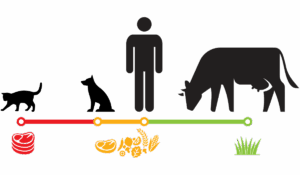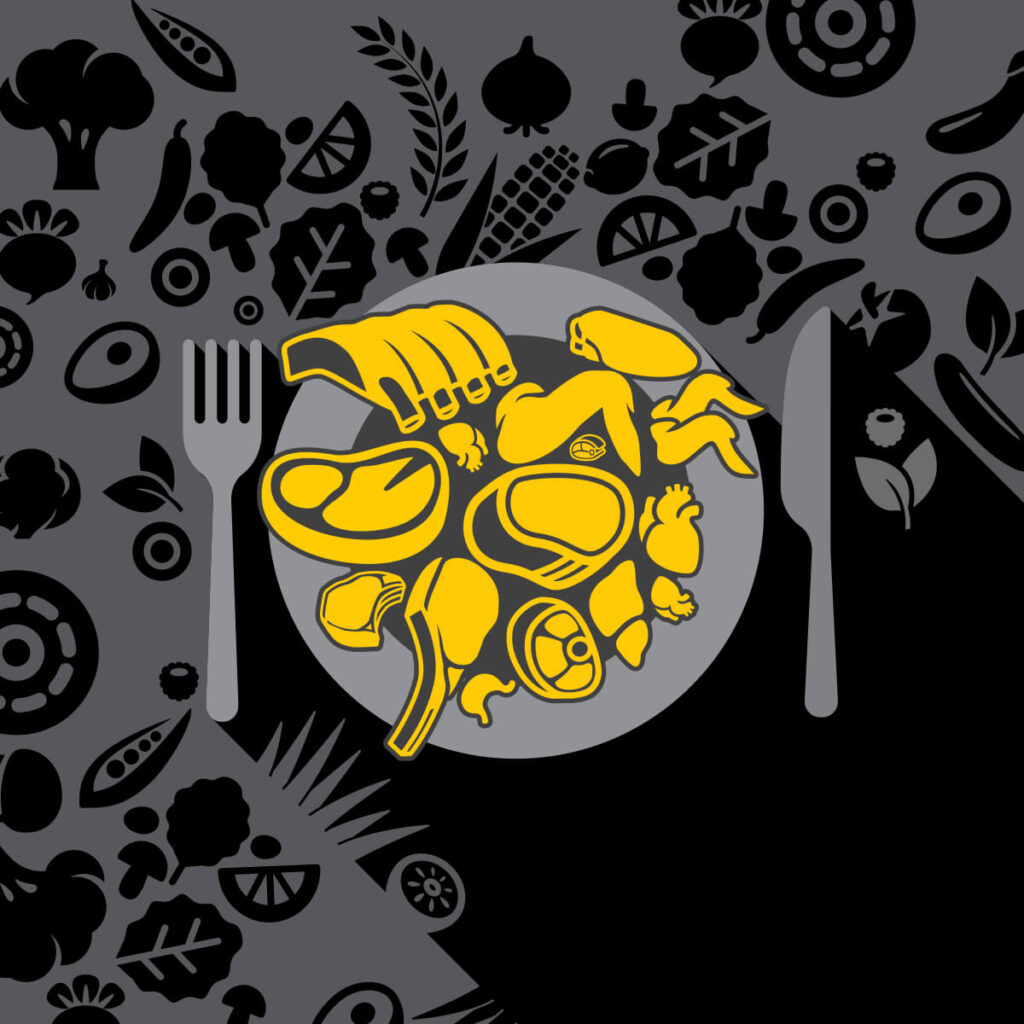Plant-based proteins can be detrimental to your cat’s health
There are increasing movements encouraging people to consume less meat and find plant-based sources of protein. Many people are adopting this #lifestyleshift in their own lives and then start investigating how they can share this approach with their pets. We have been asked in the past whether we produce vegan cat food. Admirable as this desire to cut down on meat may be for humans, it can have serious health consequences for a cat. The #lifestyleshift needed to support a cat’s health is in the opposite direction: 100% meat.

And here is why:
The digestive system of a cat is very different to that of a human. If you ever learned about the stomach of a cow that has four compartments, which allow it to extract nutrients from its 100% plant diet, then you know how different digestion in mammals can be. With cows at one end, eating only plants, humans and dogs in the middle, able to eat plants and meat and cats at the other end, only able to be healthy with a 100% meat diet.
The main differences are:
1. Length of digestive tract relative to overall body size.
This means that food eaten needs to be processed a lot faster and more efficiently in the short period it is in the digestive tract. Taking up nutrients from plants takes a lot longer (remember the compartments of the stomach of a cow?), so in the short feline digestive tract, nutrients in plants are never absorbed and end up going to waste. Cats have a very short digestive tract, much shorter than that of dogs or humans.
2. Amino Acid Profile.
All animals, including cats, have specific amino acid requirements that are essential for their health. These requirements have developed in line with the naturally available food to a species during evolution. As cats in the wild eat meat, their complete profile of essential amino acids can only be assured when they eat animal-based proteins. Plant-based proteins may lack certain crucial amino acids or may not have them in the right proportions.
3. Taurine, an Essential Amino Acid.
Essential amino acids are those a body cannot produce itself but are necessary for health. Taurine is vital for cell development in cats in the eyes and heart. It is only present in meat. If a cat does not eat enough meat, it risks heart disease and vision problems.
4. Arachidonic Acid.
This is a fatty acid, also vital for cats, which they cannot produce. Some animals, like dogs, can synthesize it from linoleic acid, cats cannot. Arachidonic Acid regulates skin cell growth and is necessary for blood clotting. It is found in animal fats, so it is important that cats eat sufficient animal products for their health.
5. Vitamin A.
Cats need preformed vitamin A (retinol) which is readily available in animal tissues. Humans can convert beta-carotene, present in many plants, to retinol. Cats are not efficient at converting beta-carotene into the active form of vitamin A.
6. High Protein Requirement.
Cats have a higher protein requirement compared to many other animals. Their metabolism is optimized for utilizing animal proteins efficiently. Plant-based diets may not provide the optimal protein quality and quantity needed for cats.
If a human reduces the amount of meat they eat, their body can maintain their health by extracting proteins, amino acids, fatty acids, and vitamins from plants. Cat’s bodies do not have that ability, so any deviation away from a 100% meat diet could lead to long-term health problems.

